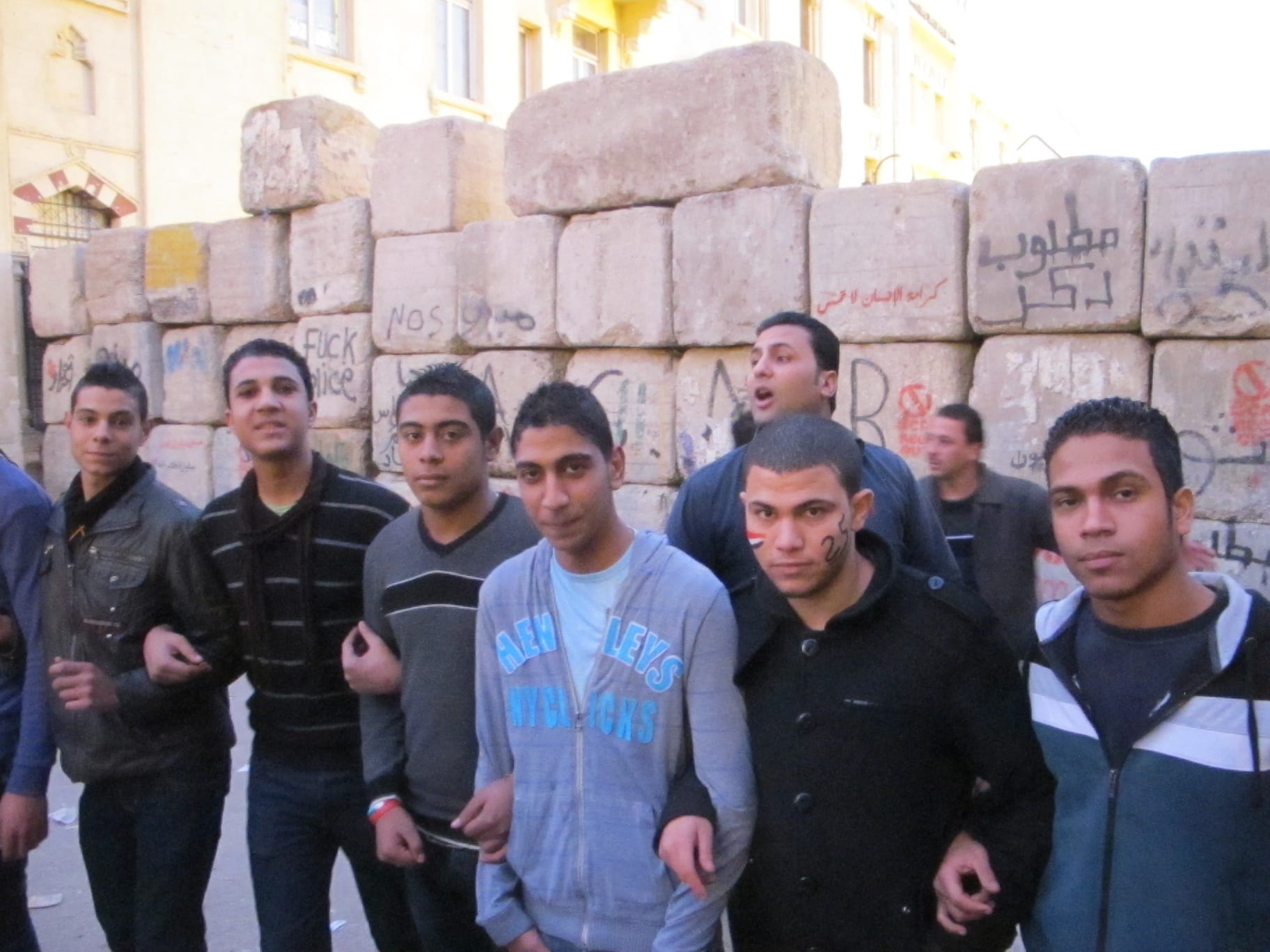Beginning in 2011, I began conducting interviews with citizens in Egypt, utilising an actor-network approach, combined with a social geometry framework. The purpose of the research was to explore the state and ongoing change of social trust networks in a revolutionary environment.
Over the course of several years (and then again in 2018) I mapped the changes in these networks according to geographic location, as well as various demographic characteristics and ideological beliefs to create a picture of the reciprocal relationship between relationships and revolution, or political change. In the course of my interviews, I also explored the sentiments surrounding these changes - the reasons for shifts and the potential impact.
Early results indicated that individuals experienced one of three different general trajectories in terms of network geometry.
1 - Expansion and Collapse - Networks expanded both geographically and in terms of diversity during the early revolution before encountering difficulties and trust issues and returning to a small homogenous and geographically limited network.
2 - Expansion and Plateau - Networks expanded and were maintained, despite increased threats and uncertainty. This was most common among women, due to the apparent resilience of women's issues in terms of forming and maintaining solidarity.
3 - No Movement - Fear and trust issues were not overcome and networks did not expand in the first instance.
By far and away the most common scenario was the 1st.
This methodology was expanded from a few dozen interviewees covering 5 different neighbourhoods in Cairo, Egypt (each representing a broadly different socio-economic group) to different cities in Egypt and different countries in the surrounding region.
In the years following, I have adopted a similar methodology to explore similar networks in other cities/countries, ranging in political conditions (such as Sudan, India, New Zealand and the United States).
The result has been to highlight a common theme - that regardless of the state of democracy, citizens (and societies) everywhere suffer from an apparent problem of social self-actualisation, wherein there are obstacles to trust and significant gaps in trust and knowledge of the demographic and ideological makeup of a polity, even at the scale of a city.
This fundamental issue, it was concluded, is a structural obstacle to sustainable democracy.
In the present, I continue this research and blog about the relationship between the structure or 'geometry' of social trust networks and the resilience and sustainability of democratic governance.

